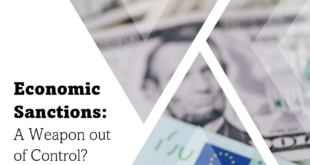Aug 22, 2022 ROBERT SKIDELSKY The widening gaps in policy formation nowadays reflect the division of labor and increasing specialization that has taken us from the sixteenth-century ideal of the Renaissance man. And today’s biggest policymaking gap has grown so large that it threatens global catastrophe. LONDON – Just as the insistent demand for more “transparency” is a sure sign of increasing opacity, the current clamor for “joined-up thinking” indicates that the need for it far...
Read More »Boris Johnson’s Fall – and Ours
Jul 19, 2022 ROBERT SKIDELSKY Although words like “unprincipled,” “amoral,” and “serial liar” seem to describe the outgoing British prime minister accurately, they accurately describe more successful political leaders as well. To explain Johnson’s fall, we need to consider two factors specific to our times. LONDON – Nearly all political careers end in failure, but Boris Johnson is the first British prime minister to be toppled for scandalous behavior. That should worry us. The...
Read More »Russia’s Path to Premodernity
Jun 14, 2022 ROBERT SKIDELSKY The Stalinist retreat from science and logic persisted following the Soviet Union’s collapse and is now the main tendency of Russian President Vladimir Putin’s rule. With his faith-based mythology, warping of history, and denial of facts, Putin’s withdrawal from contemporary Europe could not be starker. LONDON – The Russian writer Pyotr Chaadayev said of his country that “we have never advanced along with other people; we are not related to any of the...
Read More »The Guardian view on a four-day week: policies needed to make it a reality
After the first world war, workers wanted a peace dividend for their sacrifices. Within three years they got it. Almost every industrialised nation – with the exception of Japan – accepted the newly established International Labour Organization’s call to limit working hours to eight a day and 48 a week. While most developed countries enacted legislation to achieve these aims, Britain, along with the United States and Italy, did so through collective agreements. Today, the triple crises...
Read More »Buy the physical copy of ‘Economic Sanctions: A Weapon out of Control’
https://www.ebay.co.uk/itm/225003838149 Share this:Like this:Like Loading...
Read More »The Case for Nordic and NATO Realism
To be a realist in international relations is to accept that some states are more sovereign than others. “Strict realism” now requires that Sweden and Finland pause before rushing into NATO’s arms, and that the Alliance take a step back before accepting them. LONDON – Finland and Sweden have announced that they will apply for NATO membership. But joining the Alliance is more likely to weaken than enhance their security and that of Europe. Strategic neutrality has preserved Sweden’s...
Read More »The False Promise of Democratic Peace
Clinging to the assumption that only dictatorships start military conflicts, proponents of democratization believed that the global success of their project would usher in a world without war. But this theory lacks a sound foundation and has produced one disaster after another when put into practice. LONDON – Through persuasion, exhortation, legal processes, economic pressure, and sometimes military force, American foreign policy asserts the United States’ view about how the world...
Read More »Queen’s Speech on Foreign Affairs, Defence and Trade
My Lords, I find myself in profound disagreement with the Government’s war strategy in Ukraine and, in fact, with almost everything that has been said about Ukraine in this debate. I will try to explain why. British policy aims for a Russian military defeat, which it will help to bring about by economic sanctions and supplying Ukraine with the necessary means of war. Liz Truss said on 27 April: “We will keep going further and faster to push Russia out of the whole of Ukraine”....
Read More »Economic Sanctions: A Weapon out of Control?
Economic Sanctions: A Weapon out of Control? By Robert Skidelsky Centre For Global Studies, April 2022 Copyright: Centre for Global Studies. The Centre for Global Studies is a London-based think-tank that aims to improve public understanding of economics and global policy. The Centre is a registered charity and a company limited by guarantee. It is independent of any political party or group and is financed by voluntary donations and the sale of publications. Contact:...
Read More »Times letters: The tough act of following Cressida Dick
UKRAINE DIPLOMACY Sir, In discussing the possible “Finlandisation” of Ukraine, your leading article (“Kyiv’s Cause”, Feb 11) correctly states that it would unacceptable for great powers to enforce such a policy on Ukraine. In his brilliant book The Ambassadors, Sir Robert Cooper explains that Finland’s neutrality was not “enforced” by great powers but was decided by Finland itself, against the wishes of the Soviet Union, which wanted a military alliance. It was the ability of the two...
Read More » Robert Skidelsky
Robert Skidelsky

